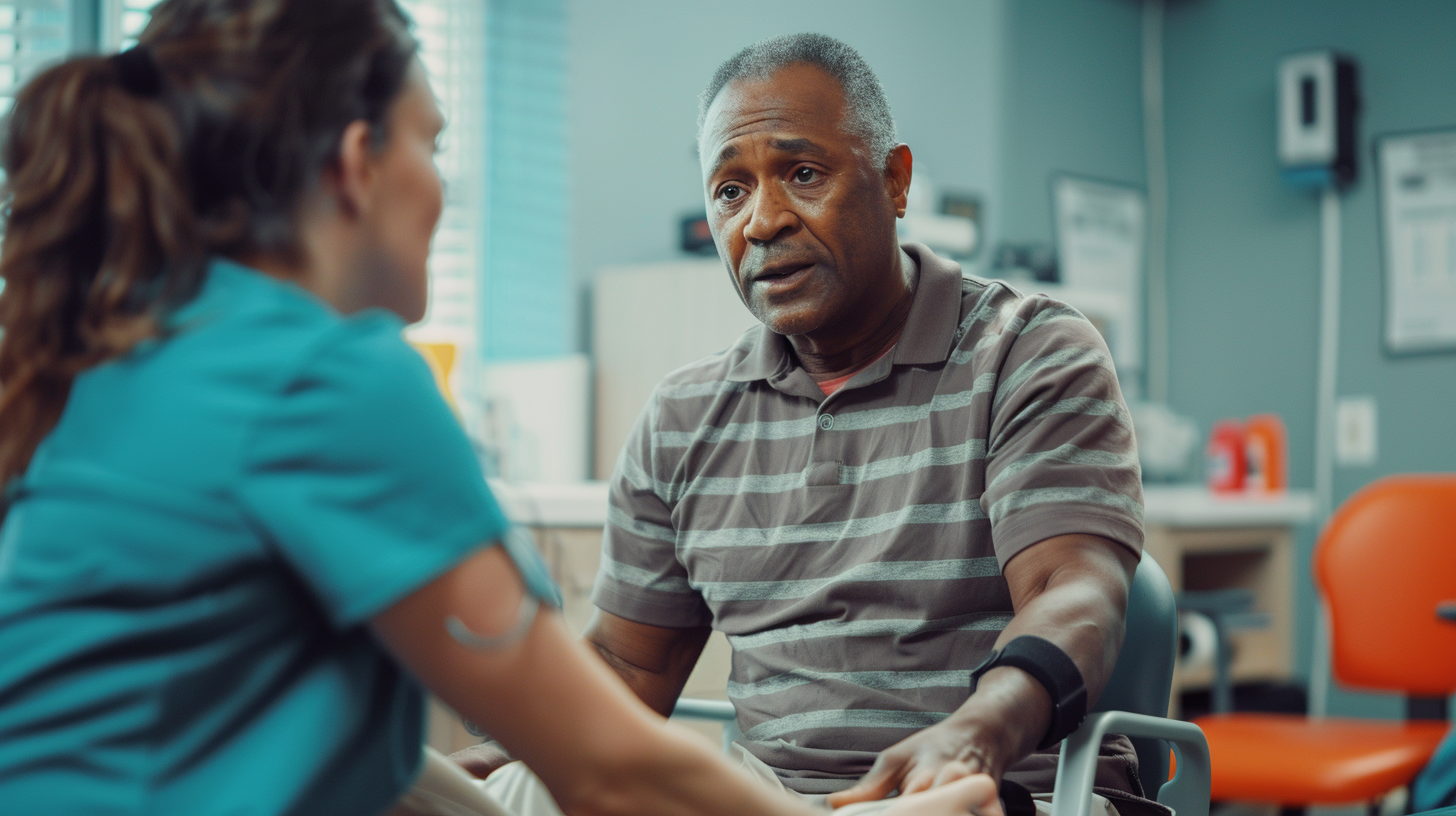
A healthcare professional guides a patient through a rehabilitation session for shoulder dislocation recovery. The patient is seated, performing shoulder mobility exercises using resistance bands. The clinical setting is modern, with therapeutic equipment visible in the background. Emphasis on the patient's focused expression and the gentle encouragement of the therapist.
Shoulder dislocation is a common traumatic injury that can significantly impact a person’s ability to return to daily activities. Dr. Rebecca S. Kearney and her team led the ARTISAN trial, a large, multicenter randomized controlled trial that aimed to explore new avenues in rehabilitation after such injuries.
The ARTISAN trial investigates the effects of a structured rehabilitation program compared to standard care. “Our goal was to determine if early, structured rehabilitation could significantly improve recovery outcomes,” explained Dr. Kearney.
The ARTISAN Trial
The ARTISAN trial enrolled participants with traumatic anterior shoulder dislocations and compared two rehabilitation pathways: usual care versus a specifically designed rehabilitation program. This study was pragmatic, involving multiple centers to provide comprehensive data. The intervention’s main focus was on improving the time it took for individuals to return to their everyday functions. Dr. David Ellard emphasized, “This approach allowed us to closely examine how much difference a structured therapy could make.”
The randomized design helped minimize biases in treatment allocation, giving researchers confidence that the results reflected real-world improvements. “The power of randomization allowed us to control for other variables,” said Dr. Aminul Haque.
Positive Outcomes from Focused Rehabilitation
The trial’s findings were clear: those who underwent the structured rehabilitation showed significantly better functional outcomes. “Patients in the rehabilitation group returned to normal activity quicker, experienced less pain, and had fewer complications,” said Dr. Helen Parsons. These results are promising, suggesting that this targeted rehabilitation method could be pivotal for better outcomes in shoulder dislocations.
The team carefully monitored each participant’s progress through assessments of shoulder function, range of motion, and quality of life. “The patients who received focused rehabilitation achieved improvements in shoulder mobility and strength at a faster pace,” commented Dr. James Mason.
Implications for Future Treatment
These findings could change the way clinicians approach shoulder dislocation recovery in the future. The success of the ARTISAN trial highlights the potential for rehabilitation protocols to be adjusted for faster recovery times and improved patient outcomes. “We hope that this study informs healthcare providers and motivates them to adopt more structured rehabilitation protocols,” remarked Dr. Martin Underwood.
The ARTISAN team’s study highlights that, while trauma patients often receive standard treatment, structured rehabilitation programs tailored to specific injuries may offer superior benefits.
The ARTISAN team’s insights will likely play a pivotal role in the future management of shoulder injuries, transforming standard rehabilitation approaches.
Citation: Kearney RS, Ellard DR, Parsons H, et al. Acute rehabilitation following traumatic anterior shoulder dislocation (ARTISAN): pragmatic, multicentre, randomised controlled trial. BMJ. 2023;384. doi:10.1136/bmj-2023-076925.
This content is generated from the original article original article and it’s under Creative Commons Attribution Non Commercial (CC BY-NC 4.0) license, which permits others to distribute, remix, adapt, build upon this work non-commercially, and license their derivative works on different terms, provided the original work is properly cited and the use is non-commercial.





